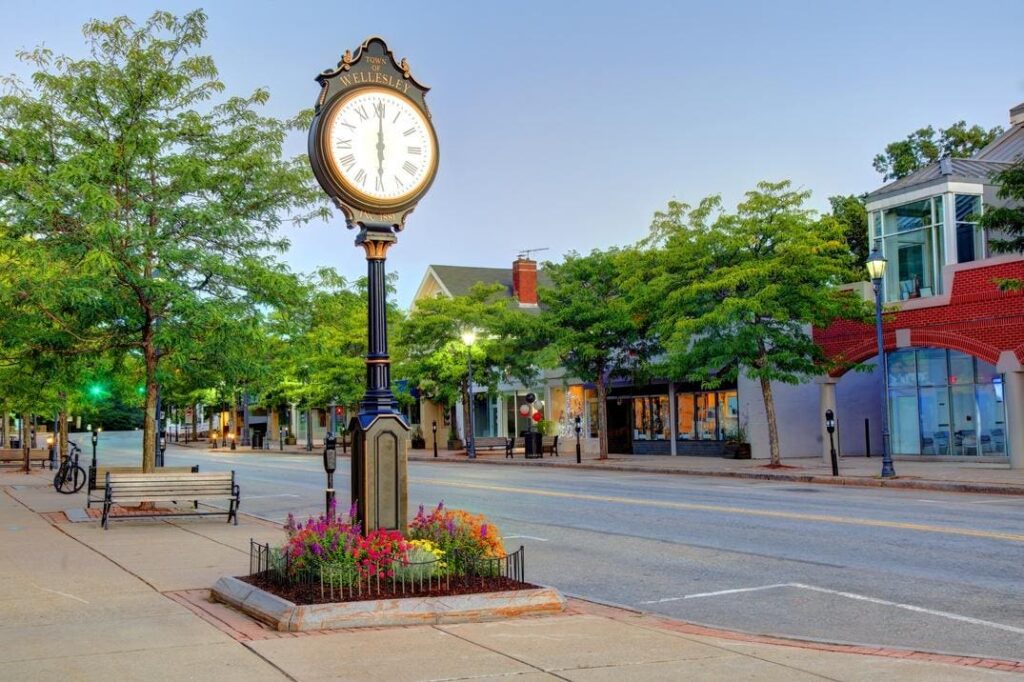Wellesley, located in Norfolk County, Massachusetts, is recognized as one of the wealthiest towns in the state, with a median household income surpassing $250,000 annually and a mean income of approximately $367,801. Massachusetts generally stands as a prosperous state, boasting a median household income of $99,858, ranking it highest among all 50 states, surpassed only by the District of Columbia. Recent analyses focused on identifying the richest cities in Massachusetts utilized robust data from the Census Bureau’s 2023 American Community Survey, which provided comprehensive information on median household income, average household income, median property values, and property taxes. This analysis encompassed 248 cities across the state to curate a list of the 50 wealthiest municipalities.
To generate the rankings of the richest cities in Massachusetts, a scoring system was constructed utilizing key financial metrics sourced from the Census Bureau. Specifically, the methodology incorporated the median and mean household incomes, median home values, and property taxes paid. Due to the Census Bureau’s upper limits on certain financial metrics, precise data was often elusive. For instance, median household incomes can reach an upper threshold of “$250,000+,” while home values max out at “$2,000,000+” and property taxes at “$10,000+.” Despite these limitations, mean household income data provided accurate figures necessary for establishing a ranked list. Additionally, the methodological choice to include Census-designated places (CDPs), which may resemble neighborhoods, is essential for this analysis as they are treated identically to cities.
The richest city in Massachusetts is Dover, a small town in Norfolk County near Boston. With a population of around 6,000 and approximately 781 households, Dover possesses a strikingly high average household income of $484,787, the highest in the state. Its residents experience elevated property values, with median home valuations exceeding $1.65 million. Consequently, households in Dover grapple with substantial property tax obligations, averaging over $10,000 each year. Following closely is Wellesley, which, like Dover, also boasts a median household income above $250,000. The town is well-known for hosting prestigious institutions such as Wellesley College and Babson College. The median home value here is even higher, standing at approximately $1.9 million, coupled with property taxes that meet or exceed the $10,000 threshold.
Boxford, situated in Essex County near the New Hampshire border, ranks as the third wealthiest city in Massachusetts. It boasts a median household income of $247,557, and an average income of $280,379, indicating less variance between the two metrics compared to Dover and Wellesley. Boxford’s median home value also reflects its affluence, exceeding $1.01 million, with homeowners facing property tax bills in excess of $10,000. The town’s employment landscape illustrates its wealth, with significant portions of the workforce engaged in high-paying sectors such as finance, insurance, professional services, and education.
Among the wealthiest municipalities in Massachusetts, Newton stands out for its larger population, housing 31,735 households. Despite its size, Newton maintains an impressive median household income of $176,373 along with a considerably higher average household income of $251,210. Notably, property tax rates are prevalent in Massachusetts, with the majority of top-ranked communities reporting average property taxes exceeding $10,000 annually. This trend underscores the financial landscape these wealthier towns navigate, illustrating the balance between income, home value, and tax obligations faced by their residents.
As one delves into the financial metrics of the richest cities in Massachusetts, a clear picture of affluence and economic power emerges. Wealthy towns such as Dover, Wellesley, and Boxford exemplify the standards of living that come with substantial incomes and high property values, while the significant property taxes reflect the cost of maintaining such lifestyles. This analysis not only highlights the economic divisions within Massachusetts but also paints a broader picture of the state’s financial climate, where education and professional opportunities in thriving sectors contribute to the overall prosperity of these regions. The data-driven approach, based on the latest available Census information, reaffirms Massachusetts as a hub of wealth in the United States.

